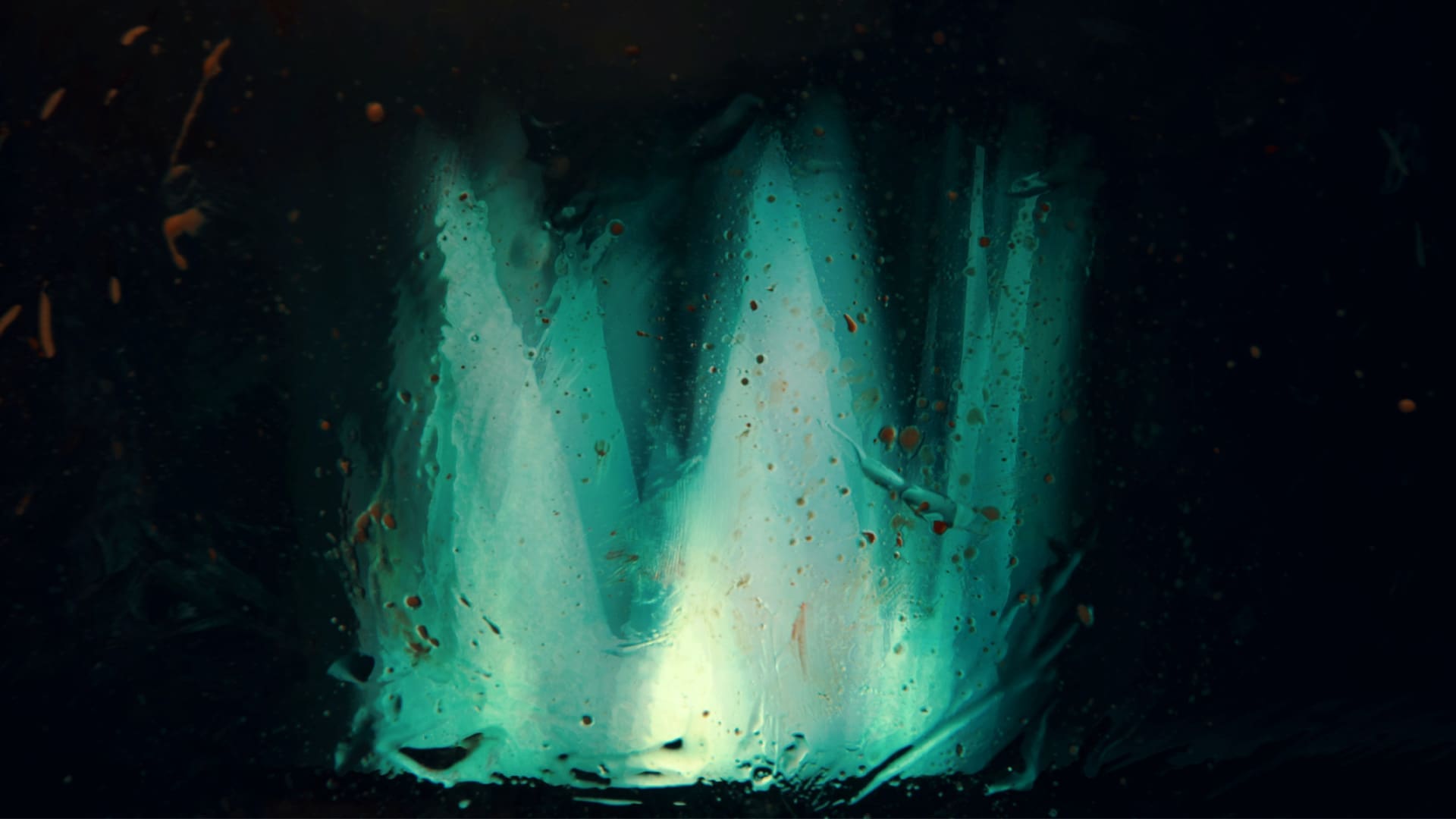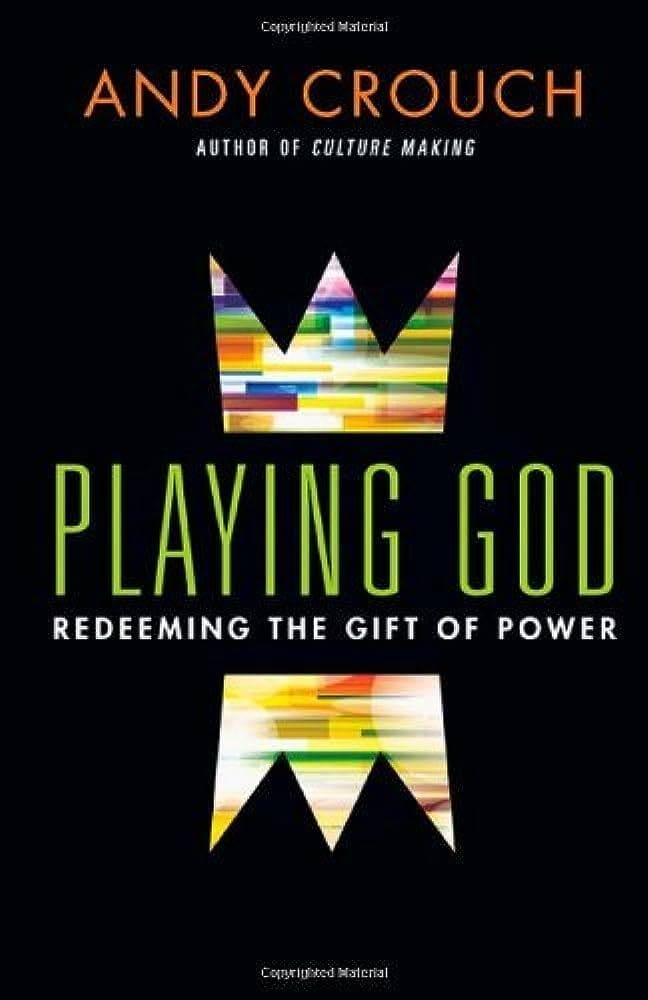I
“I want to be powerful” is the sort of penchant we put in the hearts of villains bent on world domination. Indeed, the search for power seems so blatantly wrong that it can become a cartoonish farce, like the exchange we saw in every single episode of Pinky and the Brain. “Gee, what are we going to do tonight?,” Pinky would faithfully ask. To which the Brain would maniacally reply: “The same thing we do every night, Pinky—try to take over the world!”
But what if we’ve confused power with domination? What if power is not coercive but creative? What if we were made to exercise power? Indeed, what if power is an ineradicable aspect of being created in the image of God?
“You Will Receive Power”
We tend to be allergic to power. Â This is partly because we lack imagination. We blur and confuse power and violence. We unwittingly buy into the flattened, cynical notion of power as domination, as essentially power over another. Then the biblical injunction against “lording it over” others starts ringing in our ears and, before you know it, we wrongly conclude this means we should eschew power. (As if that were even possible.) We look at those who seek positions of authority and influence as “ambitious”—and that’s not a compliment.
In Playing God, Andy Crouch argues that our allergy to power is a sign that we haven’t read the Bible very closely. For at the beginning of the biblical narrative is the commissioning of humanity to exercise power. Our image-bearing responsibility, given to us in a good creation, is to “have dominion” over creation, to fill the earth by “subduing” it. Our mission as God’s living image bearers is to tend and till the earth in order to unfurl all the potential and promise God has loaded into it. That means an awful lot of power has been entrusted to us.
But this is not a commission to go and oppress, exploit, and dominate. It is a mandate to tend, care, and steward. Power, we see, is not just force, it is potentia, capability, a potency to unpack all of the potential God has folded into creation. There is no culture-making that isn’t an exercise of power. If we fail to exercise power, we fail as image-bearers. This is why Crouch contends that “the deepest form of power is creation.” He invites us to reimagine power as “creative love”—the kind of power that multiplies when it is shared, a power that empowers. This is why Pentecost is new creation, a second Eden. The promise of the ascending Jesus is an echo of the creation narrative: “You will receive power” (Acts 1:8).
Idolatry, Injustice, and Invisible Power
Crouch is deeply sensitive to all of the ways that power goes wrong and does turn into domination, repression, and exclusion. When we hoard power as a zero-sum commodity to benefit ourselves and exclude others, then the exercise of power engenders powerlessness and dehumanizes my neighbour. When I treat power as power for me, it becomes a strategy of domination—a club by which I fend off others and reduce them to “competitors.” When I seek power or authority in order to “get mine,” or to secure “our” interests, then power is no longer creative but destructive.
“Power at its worst,” he observes, “is the unmaker of humanity.” When we exercise power in this way, we no longer function as God’s image bearers; instead we become idols and make idols. Crouch states, “God making and god playing are the same thing.” While I’m not quite convinced that all injustice reduces to expressions of idolatry, this thread of Crouch’s analysis is potent and should be an occasion for self-examination.
While blatant grabs for domination are unjust, Crouch is equally concerned about benevolent exercises of power that fail to recognize the invisible structures of oppression and domination that even our “benevolent god playing” can exacerbate. (His summary of Kurt Verbeek’s research on short-term missions is a poignant case study.) Indeed, his chapter on the “hiddenness of power” is one of the best in the book. As I read it, I was reminded of the parable David Foster Wallace told in his famous Kenyon College commencement address, “This is Water.”
There are these two young fish swimming along, and they happen to meet an older fish swimming the other way, who nods at them and says, “Morning, boys, how’s the water?” And the two young fish swim on for a bit, and then eventually one of them looks over at the other and goes, “What the hell is water?”
Crouch invites privileged fish to recognize, perhaps for the first time, the waters of power that constitute our environment, like when he—a lone, white American in a Mumbai airport check-in line—was promptly promoted to the front of the line, simply for being white and American it seemed. As he walked past the weary labourers in line before him, Crouch became conscious of the privileges he was afforded without earning. Which made him wonder about other instances of invisible power: “How many times have I been put at the front of the line without even knowing there was a line?”
The Good News About Privilege?
A good book prompts you to ask questions you wouldn’t have otherwise. A great book embeds some of those in your gut so that you can’t shake them for a while. On that score, Playing God is a great book. It provoked nagging questions I haven’t been able to shake (or answer!). So let me think out loud with Crouch about some of the dynamics involved in power, privilege, and status.
In the middle of the book, Crouch provides a helpful map of a whole lexicon of terms that we too often confuse (power, force, coercion, violence). I was most intrigued by his discussion of privilege and status. “Privilege,” he tells us, “is a special kind of power. It is a form of power that requires no effort. Indeed, only in unusual circumstances do we become conscious of it at all.” This is because privilege is “the ongoing benefits of past successful exercises of power;” it is power that “flows to us” as a result of past exercises of power that might not even have been my own. Indeed, privilege is often a generational inheritance.
Privilege, Crouch emphasizes, is not bad, but it is dangerous. It is particularly susceptible to being invisible, in which case I am more likely to abuse it. Moreover, “we can cash in the benefits of privilege for many purposes other than the exercise of true power.” But of course that is true of any of our powers and capabilities: it is always a question of what I will do with this power, whether earned or inherited. Â In the end, Crouch avoids the temptation to wallow in a favorite pastime of liberal self-consciousness: “privilege guilt” and self-loathing. To the contrary, Crouch offers a clear-eyed assessment: “Many exercises of true power begin by cashing in on our privilege, using it to launch us further than we could go on our own.” You can’t lament your privilege and cash in on it at the same time. If you’re a third-generation alumnus of Dartmouth, then you are the recipient of unique gifts of power and privilege. The way to respond to that is to use your power well, not wish you didn’t have it.
Crouch’s evaluation of “status” is markedly different. In his (somewhat idiosyncratic) definition, status is “pure privilege;” it is “your place in line.” So by definition, status is a scarce resource: “There can only be one person who is first in line.” Status, he suggests, is “ultimately about excluding.”
I’m not so sure. I’m not convinced you can affirm privilege but demonize status, in part because I can’t imagine any privilege that isn’t already accorded a kind of status. Consider some biblical examples: Wasn’t it Joseph’s status that earned him Pharaoh’s ear and trust? And it sure seems like it was the privileged, “noble” status of the Hebrew youths that landed them in Nebuchadnezzar’s court—with significant implications for the people of God (Dan. 1:3-5). Wasn’t it Paul’s status as a Roman citizen that earned him the right to testify within earshot of the emperor? He was more than happy to cash in on that (Acts 16:37-38; 22:25-29).
I’m also not sure that status is as exclusive as Crouch believes. There are lots of lines, and it’s not just the first in line that has privilege or status. Otherwise, we’d fall for the stupid, drunken maxim that guided Ricky Bobby his whole life: “If you’re not first, you’re last!” Well, no: I could be second, third, fourth…Â
Certainly we can make idols out of both privilege and status. But our penchant to idolatry is never reason to condemn a creaturely good. I think what is scandalous and sinful is the basis on which privilege and status is distributed. To imagine I am accorded privilege simply because of the colour of my skin is certainly unjust. But that one’s grandchildren might be heirs of privilege because of enduring family structures that valued education, virtue, and hard work seems quite different.
My nagging question is this: Could we ever speak positively about pursuing privilege? Could it be a holy aspiration to seek to bequeath privilege to rising generations? In an age that praises “downward mobility,” I realize just asking these questions will sound almost grotesque. But if Crouch is right about power; and if he is right that privilege can launch powerful, creative culture-making; then shouldn’t we consider whether privilege might be something to be sought and shared? Â If we really want to seek shalom and be in positions to bend North American social architecture toward the kingdom, then we might need to aspire to acquire power and authority in an array of cultural sectors. Being bashful or timid or “humble” would actually be shirking our duty and hope. (Attentive readers might hear, at this point, an echo of an earlier debate between Crouch and James Davison Hunter about cultural change and elite centres of power. I’ll leave that humming in the background.)
I think about these matters as both a parent and a professor. In both of these vocations, I hope that I exercise what power I have in order to empower younger generations to become culture-makers who bear God’s image for their neighbours. I hope that in some way the good exercise of power accrues to my children and my students, and to their children and their students so that they can be “launched” into even more powerful cultural labours than I could have imagined for myself—not so they can secure a mansion in a gated community where they park their three Escalades when they take their private jet to Tahoe, but so they can take up the awesome responsibility of being powerful in a way that images Christ and brings about shalom by empowering their neighbours.
As David Brooks once reminded us, citing Michael Oakeshott: “It takes several generations to make a career.” It might also take several generations for us to “snowball” power—not in order to “take over” in a competition for domination, but in order to be in positions of authority and influence where we can actually be agents of change and renewal.
A Different Story About Power
Because, at its heart Playing God is also a conceptual project, a reimagining of power at a fundamental level, Crouch’s argument treads on the terrain of philosophy. But this does not pretend to be an “academic” book, so it would be a bit unfair of me to criticize it on those terms. (I will say that academics might find the thinness of Crouch’s references to be a tad frustrating, since to the non-initiated it might give the impression that Playing God emerges almost ex nihilo from Crouch’s experiences and reflections, whereas many of us see sources and influences clearly operative in the background. Footnotes aren’t just boring ways to show how smart you are; they are also ways to pay your debts.)
But permit me one philosophical line of questioning. Crouch reads cultural phenomena in order to discern the spirit that animates them, the worldview that undergirds them. “The premise of the Western,” for example, “as with the Nietzschean strain in literature from Lord of the Flies to The Hunger Games, is that when you strip away the trappings of civilization, you will find raw, primal conflict, bodies in competition to occupy all space.” In the face of this, Crouch asks the most fundamental question: “What is the deepest truth about the world? Is the deepest truth a struggle for mastery and domination? Or is the deepest truth collaboration, cooperation, and ultimately love?” His reply is no less foundational: “I want to argue,” he emphasizes, “that Nietzsche’s ‘idea’ can be countered, point by point, with a very different vision of ultimate reality.”
This tack is just right: it goes to the root to recognize that how we conceive power comes down to fundamentally different mythologies, different faith-stances. What you think about power is always and ultimately rooted in some confession. In this sense, Crouch’s critique and counter-narration unwittingly replays—in much more accessible prose—precisely John Milbank’s critique of Nietzsche in his landmark book, Theology and Social Theory (especially chapter 10). A Christian understanding of power begins from a fundamentally different confessional standpoint. We refuse the myth that collapses power into violence and domination. We affirm a fundamentally different story in which power is a creative gift, and when we exercise that power rightly, we image God and love our neighbour.
But Crouch stops short of letting these questions make us even more uncomfortable. He does not address the “Nietzschean” myth of oppositional power as a version of the myth that lies behind political liberalism: the ancient story told by Hobbes and Locke and Rousseau is one about a “contract” that was necessary to deliver us from a “state of nature” that was a war of all with all. This story of “natural” competition (a zero-sum take on power) is, in many ways, the story that lies behind the Declaration of Independence and the U.S. Constitution and is assumed by our supposedly benign institutions of democracy.
I’m with Crouch: we should call into question stories of primal conflict and original domination. Â But then we should realize this isn’t just an “academic” matter: this story is inscribed in some of our most taken-for-granted institutions like electoral politics and the free market. What would it look like to refuse a story of fundamental conflict and opposition there? (It would look, I suggest, like a more communitarian understanding of society, just the sort of vision that animated John Ruskin and William Morris. But I leave that for another time.) It’s one thing to “boldly” proclaim we shouldn’t be Nietzscheans; what if the same logic means we shouldn’t be liberals?
One last philosophical aside: Crouch rightly notes that contemporary philosophy, particularly in the wake of Michel Foucault, has taken up questions of power anew. I won’t dwell on the particulars of his cursory readings of figures like Foucault and Nietzsche except to note that Foucault might be a surprising ally for Crouch’s argument. I’m not convinced that Foucault is as cynical about power as Crouch suggests. Indeed, in his groundbreaking work, Discipline and Punish, Foucault sounds a lot like Crouch when he emphasizes: “We must cease once and for all to describe the effects of power in negative terms: it ‘excludes,’ it ‘represses,’ it ‘censors,’ it ‘abstracts,’ it ‘masks,’ it ‘conceals.’ In fact, power produces; it produces reality.” That sounds a lot like Playing God.
Playing God Well
Playing God‘s proclamation of the good news about power is crucial and timely—an antidote to both our penchant to seize power exclusively as well as our allergy to assume responsibility. In many ways, I think it is the latter emphasis that is most instructive: in sketching the goodness of power, Crouch pushes back against a kind of Christian timidity whose allergy to power has been amplified by seeing so many ugly examples of “Christian” projects of domination. In the face of that, and mixed with a bit of aw-shucks Midwestern reserve, many Christians seem to have fallen into the trap of confusing power with domination. But when we do that, Crouch cautions, we are both lying to ourselves (because, in fact, we do have and exercise power) and shirking our responsibility as God’s image bearers. Such failure of responsibility can even weave itself into institutions. “[I]n any failing institution,” he observes, “as common as the abuse of power is the neglect of power. … What is widely spread whenever institutions fail is the failure to exercise power.”
So in the end, Crouch’s title is an unsettling double-entendre: On the one hand, when we misuse power, creating idols that oppress and exclude, we are “playing god” with creation. On the other hand, if we exercise power well and justly—in love—then we actually fulfill our creational mandate to “play God,” to be present to and for his creation as his image bearers. “So the question is not actually whether we are playing God,” he cautions. “We are playing some god, without a doubt. The question is, which god are we playing?”






